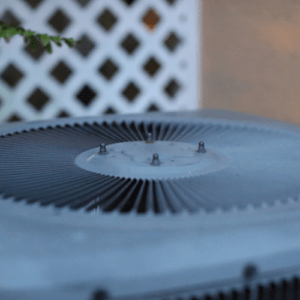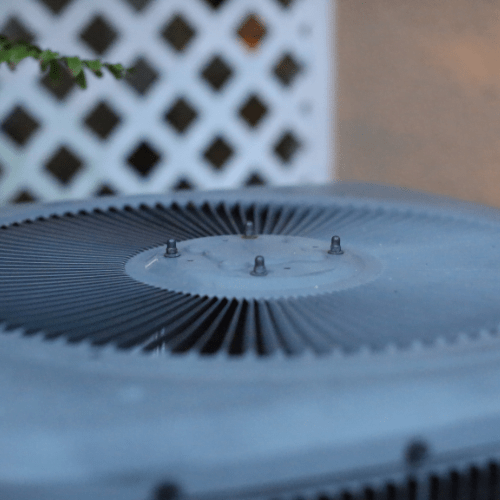Factors to Consider Before AC Unit Repair

- Age of the AC unit: One of the first things to consider is the age of the AC unit. If your unit is more than 10-15 years old, it may be more cost-effective to replace it rather than repair it. Older units tend to have more frequent breakdowns and may not be as energy-efficient as newer models. Additionally, finding replacement parts for older units can be more challenging and expensive.
- Cost of repairs: Another important factor to consider is the cost of repairs. If the repair costs are significantly high, it may make more financial sense to invest in a new unit. However, if the repair costs are relatively low and the unit is still relatively new, repairing it may be the more economical choice.
- Energy efficiency: Energy efficiency is another crucial factor to consider. Newer AC units are designed to be more energy-efficient, which can result in significant savings on your energy bills. If your current unit is outdated and consumes a lot of energy, replacing it with a more efficient model may be a wise long-term investment.
- Frequency of breakdowns: If your AC unit has been experiencing frequent breakdowns, it may be a sign that it’s nearing the end of its lifespan. Constant repairs can quickly add up, and it may be more cost-effective to replace the unit rather than continuously fixing it.
- Environmental impact: If you’re concerned about your carbon footprint and want to reduce your environmental impact, it’s worth considering the energy efficiency and eco-friendliness of your AC unit. Newer models often use more environmentally friendly refrigerants and have better insulation, resulting in lower greenhouse gas emissions.
Overall, while repairing an AC unit may seem like a cost-effective solution, it’s important to weigh the drawbacks and consider the long-term implications. Factors such as potential future issues, energy efficiency, warranty coverage, frequent repairs, limited lifespan extension, outdated technology, environmental impact, and cost considerations should all be taken into account when making a decision. Ultimately, consulting with a professional HVAC technician can help you determine the best course of action for your specific situation.
Factors to Consider
1. Age of the Unit: The age of your AC unit is an important factor to consider when deciding whether to repair or replace it. As a general rule, if your unit is more than 10-15 years old, it may be nearing the end of its lifespan. In this case, replacing it with a newer, more efficient model may be a better long-term investment.
2. Cost of the Repair: The cost of the repair plays a significant role in the decision-making process. If the repair cost is relatively low and the unit is still relatively new, repairing it may be the most cost-effective option. However, if the repair cost is high and the unit is old, it may be more economical to replace it.
3. Energy Efficiency: Consider the energy efficiency of your current AC unit. If it’s an older model and has a low SEER (Seasonal Energy Efficiency Ratio) rating, it may be costing you more in energy bills. Upgrading to a newer, more energy-efficient unit can help you save on your monthly cooling costs.
4. Frequency of Breakdowns: If your AC unit has a history of frequent breakdowns and repairs, it may be a sign that it’s reaching the end of its lifespan. Constant repairs can become costly and inconvenient. In such cases, replacing the unit may be a more reliable and cost-effective solution.
5. Environmental Impact: Another factor to consider is the environmental impact of your AC unit. Older units may use refrigerants that are harmful to the ozone layer, such as R-22. Replacing your old unit with a newer one that uses more environmentally friendly refrigerants, such as R-410A, can help reduce your carbon footprint and contribute to a greener planet.
6. Home Comfort: Evaluate how well your current AC unit is keeping your home comfortable. If it struggles to cool your space adequately or if there are noticeable temperature inconsistencies throughout your home, it may be a sign that your unit is no longer able to meet your cooling needs. Upgrading to a more powerful and efficient unit can help ensure optimal comfort in every room.
7. Warranty Coverage: Check if your AC unit is still under warranty. If it is, repairing the unit may be a more cost-effective option, especially if the repair falls under the warranty coverage. However, if the warranty has expired, it’s essential to consider the cost of repairs and whether it’s worth investing in an older unit.
8. Future Plans: Consider your future plans for your home. If you’re planning to sell your property in the near future, a new AC unit can be an attractive selling point. Additionally, if you’re planning to stay in your home for a long time, investing in a new, energy-efficient unit can provide you with long-term savings and comfort.
9. Professional Advice: It’s always a good idea to consult with a professional HVAC technician before making a decision. They can assess the condition of your AC unit, provide expert advice, and help you make an informed choice based on your specific needs and budget.










